Events
| Name | organizer | Where |
|---|---|---|
| MBCC “Doing Business with Mongolia seminar and Christmas Receptiom” Dec 10. 2025 London UK | MBCCI | London UK Goodman LLC |
NEWS
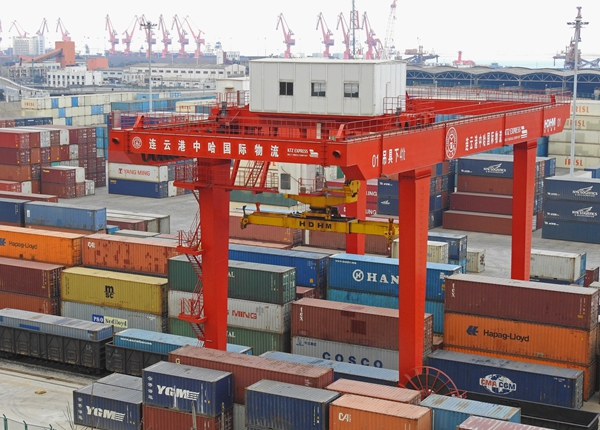
Mongolia’s imports from Taiwan increasing www.news.mn
The total value of Mongolia’s imports from Taiwan reached USD 8.1 million in the first nine months of 2018, which is 1.7 times more than the same period in 2017. This is the best recorded performance since Taiwan’s Trade Mission started operation in Ulaanbaatar in 2002. Previously, Mongolia’s import volume from Taiwan reached USD 7.8 million in 2014.
Mongolian imports from Taiwan are mostly electronics, medical equipment, medicine and health products. These products account for 87 percent of total Taiwanese imports.
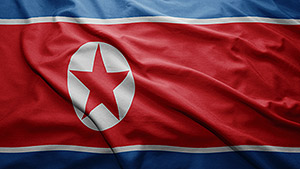
Korean Peninsula Peace Process Forum held in UB www.news.mn
A forum entitled the ‘Peace Process on the Korean Peninsula and perspectives of ROK and Mongolian relations’, co-organized by the Embassy of the Republic of Korea in Ulaanbaatar and Mongolian research academies took place on 30 November.
As the only Northeast Asian nation not involved in the nuclear talks with North Korea, Mongolia is often left out of discussions about resolving the region’s most intractable security issue – the North Korean nuclear crisis. Mongolia has offered this as one path for North Korea to develop its economy while retaining its sovereignty.
The organizers said that the meeting in Mongolia, which maintains good relations with both Koreas, intends to highlight Mongolia’s role in promoting inter-Korean relations and contribution to regional peace and stability. A Mongolian delegate expressed that the country has been striving to be an active intermediary in the Northeast Asian issue.
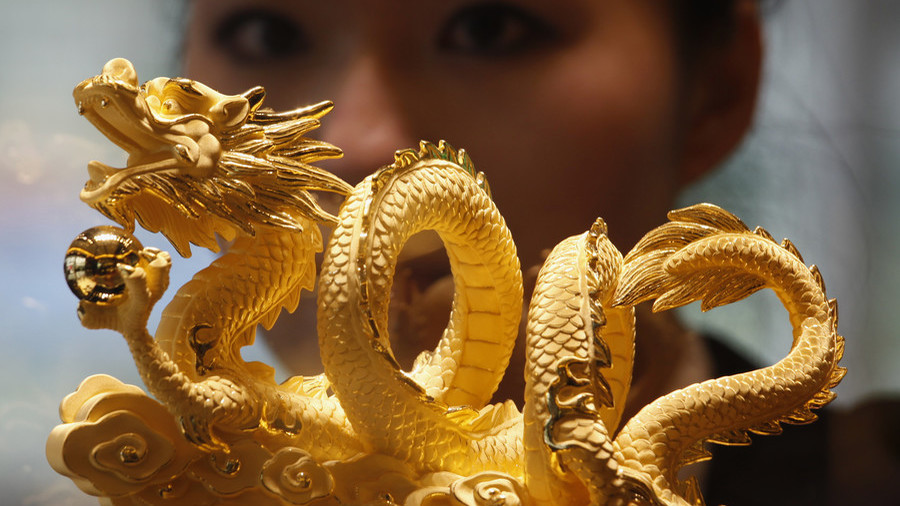
Asia markets rise after US and China agree to trade truce www.bbc.com
Asian markets rose after the presidents of China and the US reached a temporary truce in their trade war.
At the G20 summit, Donald Trump and Xi Jinping agreed to halt new trade tariffs for 90 days to allow for talks.
An escalating trade war between the world's two largest economies has weighed on markets generally.
The US and China have imposed billions of dollars of tariffs on one another's goods, posing risks to global trade and the world economy.
In China, Hong Kong's Hang Seng index and Shanghai Composite were up more than 2% in early trading, while Japan's Nikkei 225 rose more than 1%.
"I do not think market consensus is looking for very significant progress, this is a temporary truce," Masamichi Adachi senior economist at JP Morgan in Japan said.
"Many people suspected that there may be a more disastrous outcome, this is definitely a relief."
The US and China have been embroiled in a trade war this year which has seen the US hit China with tariffs on $250bn (£195.9bn) worth of goods since July, and China retaliate with duties on some $110bn of US goods over the same period.
Stakes were high at a meeting between President Trump and President Xi at last week's G20 meeting in Argentina.
Failure to achieve a ceasefire would have seen tariffs on $200bn worth of Chinese goods rise from 10% to 25% at the start of next year, and would have opened the way for tariffs on additional Chinese goods.
Hopes of a breakthrough at the G20 had been undermined right before the meeting by comments from the US president.
President Trump said last week he was likely to go ahead with a planned tariff hike and reiterated his threats that the US could impose tariffs on the remaining $267bn of Chinese imports into the country.
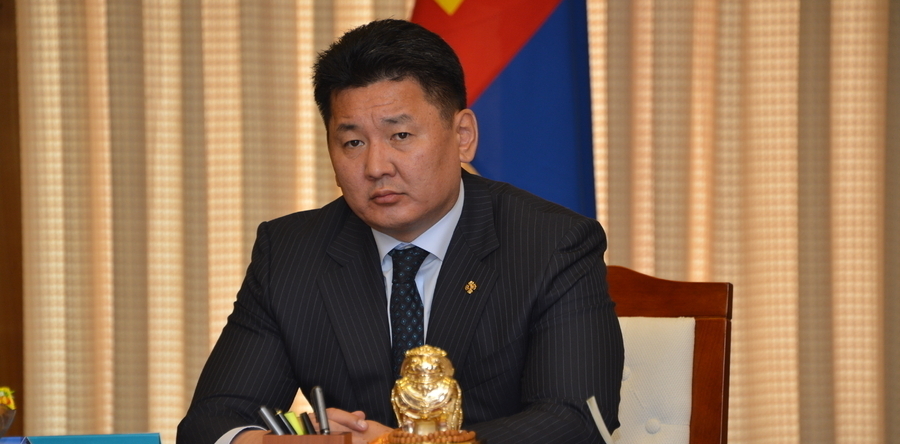
PM remains: Parliament prioritizes political stability www.zgm.mn
At its plenary session last Friday, the Parliament discussed the bill on ousting the Prime Minister Khurelsukh Ukhnaa and rejected the bill with 40 votes (54.8 percent) from Parliament members (MPs). This could potentially lead to discussion on dismissal of Parliament Speaker Enkhbold Miyegombo as the PM announced to oust Mr. Enkhbold from the party and turned to Constitutional Court over his involvement in alleged MNT 60 billion sell-off case.
The MPP board convened last month and decided to oust Mayor Batbold Sundui and Speaker Enkhbold Miyegombo. The board went into a heated discussion over Small and Medium-sized Enterprise Development (SME) Fund sandal, which later ended in the dismissal of MPP caucus Chairman Khayankhyarvaa Damdin. Later on, 27 MPs, including Mr. Khayankhyarvaa, submitted a petition to dissolve the Cabinet over SME Development Fund scandal and the inability of PM to deal with Cabinet members involved in the case.
At the Parliament session, PM Khurelsukh addressed, “I am focusing on two focal areas, first to establish justice in the society and improve accountability. We have successfully tackled a downturn and will focus on restoring the economy now. Secondly, I will do anything to break down the pyramid of injustice. As the Chairman of MPP, I ask Enkhbold Miyegombo to submit his resignation letter. You are unqualified to serve as the Parliament Speaker. It seems that law enforcers need to focus on being independent as they face lots of demand and pressure from politicians, becoming a political instrument. Law enforcers need to serve the public and I will look into it.”
After hours of heated dispute, the poll was ended in favor of PM Khurelsukh. Among the 40 MPs who rejected the bill, DP members Bold Luvsanvandan, Batzandan Jalbasuren, Murat Dakei and independent member Javkhlan Samand were included and only four votes could have swayed the fate of Khurelsukh and his Cabinet. As for the dispute between Speaker and Premier, it is up to the Constitutional Court to make the final decision because the Prime Minister has submitted a request to the court over MNT 60 billion sell-off of public sector positions, which will be reviewed within 14 days.
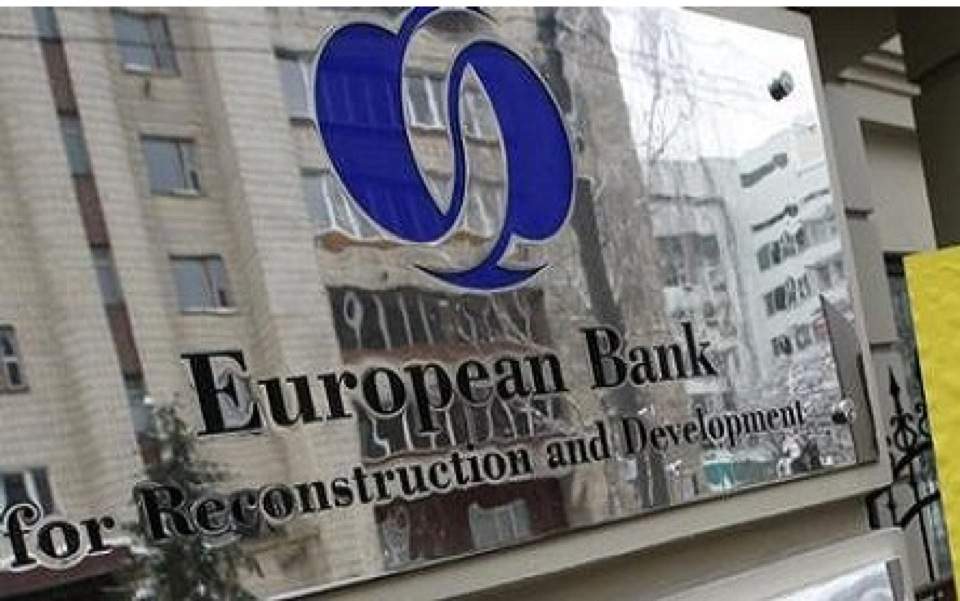
“Mongolian Economic Diversification - Role of Business Associations” www.applicatio.com
“Mongolian Economic Diversification - Role of Business Associations”
EBRD Conference on Advocacy, Fundraising and Networking
The EBRD/EU Project “Building Effective Business Membership Organisations in Mongolia 2017-2019” organises a conference on Advocacy, Fundraising and Networking
Ulaanbaatar/Monday 3 December 2018; The EBRD/EU project “Building Effective Business Membership Organisations in Mongolia 2017-2019”, which currently supports 12 Business Membership Organisations from various sectors, is holding a conference for BMOs, governmental partners, financers and other stakeholders on Advocacy, Fundraising and Networking.
The conference aims at bringing together business membership organisations from various sectors with partners from the private sector and initiate exchange, networking and cooperation with a special focus on advocacy and fundraising. Both topics are of high importance and interest to BMOs, the private sector and the public administration.
The one-day conference takes place at the Chinggis Khan Hotel on 3 December 3. Special guests are, inter alia, the EU Ambassador to Mongolia, Traian Laurentiu Hristea, the EBRD Head of Resident Office in Mongolia, Irina Kravchenko, as well as representatives of various ministries, local governments and donor organisations. Organised and facilitated by experts of the Consortium APPLICATIO/ICON (APPLICATIO Training & Management GmbH, ICON Institute GmbH) from Germany, the conference is financed by the EBRD with funding from the European Union. Representatives of the supported BMOs are prepared in a special two-day workshop in advance to discuss advocacy and fundraising with the international trainer Mr Dr Thomas Jenisch.
Key-note speeches, panel discussions and interviews include: “The Importance of Sustainable Business Associations and Their Networking” (Baigalmaa Sanjjav, EBRD), “Crowd Funding – Innovative Fundraising” (Dr Thomas Jenisch), “Sustainability of Business Associations in Mongolia” (panel discussion), “Funding of Smaller-Scale Projects: JICA - Two Step Loan” (Kentaro Hotta, JICA Mongolia Office), “How to Develop a Convincing Project Idea that Attracts Funders” (R. Khos-Erdene, DS-Consultants Co. Ltd.), “Best-Practice Sample: Advocacy - Successful Change of Perspective” (Nasanjargal, D.), “The role of BMOs in Advocacy and the Role of Advocacy for BMO” (Interview), Best Practice Sample: “Successful Advocacy” (Mr N. Bayarsaikhan, Vice President of MNCA).
...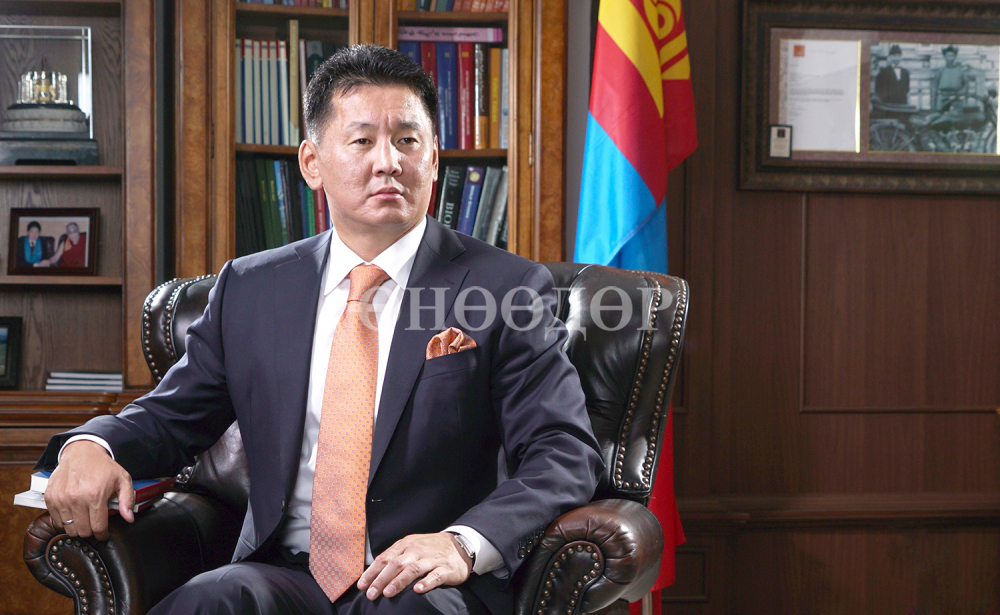
'I am not a dictator': Mongolian PM survives attempted ousting www.theguardian.com
Mongolia’s prime minister and his cabinet have survived a parliamentary attempt to sack them over a corruption scandal that has implicated high-level politicians in a state fund embezzlement scheme.
“I am not a dictator,” said Ukhnaa Khurelsukh, the PM, during a heated session that lasted more than four hours.
“Some of you are thinking and are afraid that I might turn into a dictator – I assure you I won’t.”
In a council meeting earlier this month, Khurelsukh demanded that several high-ranking officials step down for various reasons, including incompetence, resulting in the vote to oust him from office.
One member of the prime minister’s cabinet resigned over corruption allegations.
The move to boot Khurelsukh comes just over a year after the prime minister was named to replace his predecessor, Jargaltulgiin Erdenebat.
In September 2017, Erdenebat too faced parliament over allegations of corruption, such as providing illegal cash allowances to voters, and was sacked along with his cabinet.
Political instability has been a constant problem for the young central Asian democracy, which passed its first constitution in 1992 after decades of communist rule.
The country has been through 15 different cabinets in the years since, each lasting an average of 1.5 years.

International conference on hazardous waste management takes place www.montsame.mn
Ulaanbaatar /MONTSAME/ The Ministry of Environment and Tourism, the General Agency for Specialized Investigation (GASI) and the European Bank for Reconstruction and Development (EBRD) jointly organized ‘Hazardous Waste Management in Mongolia- Further Actions’ international conference yesterday, November 28.
Citizens understand hazardous waste as only toxic chemicals. But even widely used batteries are hazardous. It is important that citizens have knowledge on possibilities to recycle their waste, Head of Environment and Natural Resource Management Department of the Ministry G.Nyamdavaa highlighted during the conference.
He also added that our country disposes medical waste at certain level, nevertheless, it cannot remove chemical agents. Therefore, having sites for burying and recycling hazardous waste is becoming a pressing issue for us.
Hence, it is impossible to export hazardous waste, there is necessity to recycle it at home and dispose in a way of not causing adverse impact to the nature. A survey says that the country produces 10 thousand tons of hazardous waste nationwide a year, of which only 10-20 percent are recycled.
“Revised law on Waste was adopted by the Parliament in 2017 and it became possible for GASI to oversee entities that produce hazardous waste. The entities are now aware of damage and importance of hazardous waste management,” said U.Ulziitsetseg, Senior environmental inspector at GASI.
At the end of the meeting, representatives of the Ministry of Environment and Tourism, GASI and EBRD released recommendation on reduction of hazardous waste in Mongolia to submit it to the Cabinet and other relevant organizations.

Non-performing loans grow 45 percent in one month www.zgm.mn
Bank of Mongolia (BoM) recently reported the results of commercial bank balance sheet data for October 2018. Key highlight from the report was that the balance sheet resulted MNT 200 billion in loss in the first 10 months of this year.
Although the indicator was MNT 42 billion in surplus in September, the surplus shifted into a loss of MNT 240 billion within a month. As for the same period of last year, the balance sheet of domestic commercial banks was at MNT 220 billion in surplus.
Also, the amount of non-performing loans (NPL) reached MNT 1.9 trillion which is 11.9 percent of total gross loans. Total amount of NPL jumped by MNT 600 billion or 45 percent month over month.
Mongolian Bankers Association, in its February 2018 report, explained that the loss is related to the measures under the Asset Quality Review, which was organized within the frames of the International Monetary Fund (IMF) program.
At the completion of the sixth review under the Extended Fund Facility program, the IMF team warned, “The undercapitalized have until end-December to raise the necessary new capital and failure to do so will face Central Bank intervention or be resolved as per the Banking Law.” The BoM informed that the undercapitalized banks increased their assets by MNT 140 billion as of yesterday. Furthermore, a BoM spokesperson noted that 2-3 banks are currently in systematic risk.
Analysts highlighted the fact that the percentage of NPL to total gross loans entering double-digits means is an alarming signal for the financial system. Due to inflation reaching 7 percent in Ulaanbaatar city, NPL to total gross loans totalling 12 percent and rapid depreciation of MNT rate, the BoM raised the interest rate to 11 percent from 10. On the contrary, the Parliament approved the 2019 State Budget with MNT 11.6 trillion expenditure and MNT 2 trillion in deficit. Local media outlets are pointing out that this will further increase debt pressure starting from 2021 when sovereign bond repayments are due.

Mongolia restores power in parts of country after massive outage www.news.mn
Mongolian power utility said on Thursday it had started to restore electricity to western parts of the country after country was hit by a massive blackout on 24 November. A snow storm from Siberia hit Mongolia last week causing a massive power blackout across western parts of the country. Three people were injured and 1600 livestock were lost in the storm.
Nearly 50 districts across the four western provinces were left without power. According to the Mongolian National Emergency Management Agency (NEMA), 13 power lines with a capacity of 330 kW were torn down by the strong winds.
According to the National Agency for Meteorology and Environmental Monitoring, strong winds and heavy snow are expected to hit large parts of the country over the coming days.

Indian billionaire won't use tax dollars for controversial coal mine in Australia www.cnn.com
New Delhi (CNN Business)One of India's richest men is pushing ahead with a controversial coal mine in Australia, but the project will be scaled back after plans for state subsidies were dropped following huge protests.
The Adani Group, owned by billionaire Gautam Adani, said Thursday that its Carmichael mine in Queensland state will be "100% financed" through its own resources.
Construction of the project, which has been repeatedly delayed by protests from politicians and environmentalists, can now begin, Adani's mining chief Lucas Dow said.
"We will now deliver the jobs and business opportunities we have promised ... all without requiring a cent of Australian taxpayer dollars," Dow said in a speech in Queensland released by the company.
The proposed use of Australian taxpayer dollars had enraged opponents of the mine, who say it will be a "death sentence" for the Great Barrier Reef because of the high levels of carbon pollution that coal produces. Large parts of the reef have already been destroyed by rising ocean temperatures linked to global warming.
Adani has significantly scaled back its ambitions for the mine. It had projected production of 60 million tons of coal a year, but says now that it will peak at 27.5 million tons.
Adani had initially said it would spend about $12 billion on the project, which also included a new railway line and an airstrip. It did not reveal how much the smaller mine will cost.
"The project stacks up both environmentally and financially," Dow said on Wednesday, adding that the company is working with regulators to get the remaining approvals it needs to start actually producing coal from the mine.
Angus Watson contributed to this report
- «
- 1
- 2
- 3
- 4
- 5
- 6
- 7
- 8
- 9
- 10
- 11
- 12
- 13
- 14
- 15
- 16
- 17
- 18
- 19
- 20
- 21
- 22
- 23
- 24
- 25
- 26
- 27
- 28
- 29
- 30
- 31
- 32
- 33
- 34
- 35
- 36
- 37
- 38
- 39
- 40
- 41
- 42
- 43
- 44
- 45
- 46
- 47
- 48
- 49
- 50
- 51
- 52
- 53
- 54
- 55
- 56
- 57
- 58
- 59
- 60
- 61
- 62
- 63
- 64
- 65
- 66
- 67
- 68
- 69
- 70
- 71
- 72
- 73
- 74
- 75
- 76
- 77
- 78
- 79
- 80
- 81
- 82
- 83
- 84
- 85
- 86
- 87
- 88
- 89
- 90
- 91
- 92
- 93
- 94
- 95
- 96
- 97
- 98
- 99
- 100
- 101
- 102
- 103
- 104
- 105
- 106
- 107
- 108
- 109
- 110
- 111
- 112
- 113
- 114
- 115
- 116
- 117
- 118
- 119
- 120
- 121
- 122
- 123
- 124
- 125
- 126
- 127
- 128
- 129
- 130
- 131
- 132
- 133
- 134
- 135
- 136
- 137
- 138
- 139
- 140
- 141
- 142
- 143
- 144
- 145
- 146
- 147
- 148
- 149
- 150
- 151
- 152
- 153
- 154
- 155
- 156
- 157
- 158
- 159
- 160
- 161
- 162
- 163
- 164
- 165
- 166
- 167
- 168
- 169
- 170
- 171
- 172
- 173
- 174
- 175
- 176
- 177
- 178
- 179
- 180
- 181
- 182
- 183
- 184
- 185
- 186
- 187
- 188
- 189
- 190
- 191
- 192
- 193
- 194
- 195
- 196
- 197
- 198
- 199
- 200
- 201
- 202
- 203
- 204
- 205
- 206
- 207
- 208
- 209
- 210
- 211
- 212
- 213
- 214
- 215
- 216
- 217
- 218
- 219
- 220
- 221
- 222
- 223
- 224
- 225
- 226
- 227
- 228
- 229
- 230
- 231
- 232
- 233
- 234
- 235
- 236
- 237
- 238
- 239
- 240
- 241
- 242
- 243
- 244
- 245
- 246
- 247
- 248
- 249
- 250
- 251
- 252
- 253
- 254
- 255
- 256
- 257
- 258
- 259
- 260
- 261
- 262
- 263
- 264
- 265
- 266
- 267
- 268
- 269
- 270
- 271
- 272
- 273
- 274
- 275
- 276
- 277
- 278
- 279
- 280
- 281
- 282
- 283
- 284
- 285
- 286
- 287
- 288
- 289
- 290
- 291
- 292
- 293
- 294
- 295
- 296
- 297
- 298
- 299
- 300
- 301
- 302
- 303
- 304
- 305
- 306
- 307
- 308
- 309
- 310
- 311
- 312
- 313
- 314
- 315
- 316
- 317
- 318
- 319
- 320
- 321
- 322
- 323
- 324
- 325
- 326
- 327
- 328
- 329
- 330
- 331
- 332
- 333
- 334
- 335
- 336
- 337
- 338
- 339
- 340
- 341
- 342
- 343
- 344
- 345
- 346
- 347
- 348
- 349
- 350
- 351
- 352
- 353
- 354
- 355
- 356
- 357
- 358
- 359
- 360
- 361
- 362
- 363
- 364
- 365
- 366
- 367
- 368
- 369
- 370
- 371
- 372
- 373
- 374
- 375
- 376
- 377
- 378
- 379
- 380
- 381
- 382
- 383
- 384
- 385
- 386
- 387
- 388
- 389
- 390
- 391
- 392
- 393
- 394
- 395
- 396
- 397
- 398
- 399
- 400
- 401
- 402
- 403
- 404
- 405
- 406
- 407
- 408
- 409
- 410
- 411
- 412
- 413
- 414
- 415
- 416
- 417
- 418
- 419
- 420
- 421
- 422
- 423
- 424
- 425
- 426
- 427
- 428
- 429
- 430
- 431
- 432
- 433
- 434
- 435
- 436
- 437
- 438
- 439
- 440
- 441
- 442
- 443
- 444
- 445
- 446
- 447
- 448
- 449
- 450
- 451
- 452
- 453
- 454
- 455
- 456
- 457
- 458
- 459
- 460
- 461
- 462
- 463
- 464
- 465
- 466
- 467
- 468
- 469
- 470
- 471
- 472
- 473
- 474
- 475
- 476
- 477
- 478
- 479
- 480
- 481
- 482
- 483
- 484
- 485
- 486
- 487
- 488
- 489
- 490
- 491
- 492
- 493
- 494
- 495
- 496
- 497
- 498
- 499
- 500
- 501
- 502
- 503
- 504
- 505
- 506
- 507
- 508
- 509
- 510
- 511
- 512
- 513
- 514
- 515
- 516
- 517
- 518
- 519
- 520
- 521
- 522
- 523
- 524
- 525
- 526
- 527
- 528
- 529
- 530
- 531
- 532
- 533
- 534
- 535
- 536
- 537
- 538
- 539
- 540
- 541
- 542
- 543
- 544
- 545
- 546
- 547
- 548
- 549
- 550
- 551
- 552
- 553
- 554
- 555
- 556
- 557
- 558
- 559
- 560
- 561
- 562
- 563
- 564
- 565
- 566
- 567
- 568
- 569
- 570
- 571
- 572
- 573
- 574
- 575
- 576
- 577
- 578
- 579
- 580
- 581
- 582
- 583
- 584
- 585
- 586
- 587
- 588
- 589
- 590
- 591
- 592
- 593
- 594
- 595
- 596
- 597
- 598
- 599
- 600
- 601
- 602
- 603
- 604
- 605
- 606
- 607
- 608
- 609
- 610
- 611
- 612
- 613
- 614
- 615
- 616
- 617
- 618
- 619
- 620
- 621
- 622
- 623
- 624
- 625
- 626
- 627
- 628
- 629
- 630
- 631
- 632
- 633
- 634
- 635
- 636
- 637
- 638
- 639
- 640
- 641
- 642
- 643
- 644
- 645
- 646
- 647
- 648
- 649
- 650
- 651
- 652
- 653
- 654
- 655
- 656
- 657
- 658
- 659
- 660
- 661
- 662
- 663
- 664
- 665
- 666
- 667
- 668
- 669
- 670
- 671
- 672
- 673
- 674
- 675
- 676
- 677
- 678
- 679
- 680
- 681
- 682
- 683
- 684
- 685
- 686
- 687
- 688
- 689
- 690
- 691
- 692
- 693
- 694
- 695
- 696
- 697
- 698
- 699
- 700
- 701
- 702
- 703
- 704
- 705
- 706
- 707
- 708
- 709
- 710
- 711
- 712
- 713
- 714
- 715
- 716
- 717
- 718
- 719
- 720
- 721
- 722
- 723
- 724
- 725
- 726
- 727
- 728
- 729
- 730
- 731
- 732
- 733
- 734
- 735
- 736
- 737
- 738
- 739
- 740
- 741
- 742
- 743
- 744
- 745
- 746
- 747
- 748
- 749
- 750
- 751
- 752
- 753
- 754
- 755
- 756
- 757
- 758
- 759
- 760
- 761
- 762
- 763
- 764
- 765
- 766
- 767
- 768
- 769
- 770
- 771
- 772
- 773
- 774
- 775
- 776
- 777
- 778
- 779
- 780
- 781
- 782
- 783
- 784
- 785
- 786
- 787
- 788
- 789
- 790
- 791
- 792
- 793
- 794
- 795
- 796
- 797
- 798
- 799
- 800
- 801
- 802
- 803
- 804
- 805
- 806
- 807
- 808
- 809
- 810
- 811
- 812
- 813
- 814
- 815
- 816
- 817
- 818
- 819
- 820
- 821
- 822
- 823
- 824
- 825
- 826
- 827
- 828
- 829
- 830
- 831
- 832
- 833
- 834
- 835
- 836
- 837
- 838
- 839
- 840
- 841
- 842
- 843
- 844
- 845
- 846
- 847
- 848
- 849
- 850
- 851
- 852
- 853
- 854
- 855
- 856
- 857
- 858
- 859
- 860
- 861
- 862
- 863
- 864
- 865
- 866
- 867
- 868
- 869
- 870
- 871
- 872
- 873
- 874
- 875
- 876
- 877
- 878
- 879
- 880
- 881
- 882
- 883
- 884
- 885
- 886
- 887
- 888
- 889
- 890
- 891
- 892
- 893
- 894
- 895
- 896
- 897
- 898
- 899
- 900
- 901
- 902
- 903
- 904
- 905
- 906
- 907
- 908
- 909
- 910
- 911
- 912
- 913
- 914
- 915
- 916
- 917
- 918
- 919
- 920
- 921
- 922
- 923
- 924
- 925
- 926
- 927
- 928
- 929
- 930
- 931
- 932
- 933
- 934
- 935
- 936
- 937
- 938
- 939
- 940
- 941
- 942
- 943
- 944
- 945
- 946
- 947
- 948
- 949
- 950
- 951
- 952
- 953
- 954
- 955
- 956
- 957
- 958
- 959
- 960
- 961
- 962
- 963
- 964
- 965
- 966
- 967
- 968
- 969
- 970
- 971
- 972
- 973
- 974
- 975
- 976
- 977
- 978
- 979
- 980
- 981
- 982
- 983
- 984
- 985
- 986
- 987
- 988
- 989
- 990
- 991
- 992
- 993
- 994
- 995
- 996
- 997
- 998
- 999
- 1000
- 1001
- 1002
- 1003
- 1004
- 1005
- 1006
- 1007
- 1008
- 1009
- 1010
- 1011
- 1012
- 1013
- 1014
- 1015
- 1016
- 1017
- 1018
- 1019
- 1020
- 1021
- 1022
- 1023
- 1024
- 1025
- 1026
- 1027
- 1028
- 1029
- 1030
- 1031
- 1032
- 1033
- 1034
- 1035
- 1036
- 1037
- 1038
- 1039
- 1040
- 1041
- 1042
- 1043
- 1044
- 1045
- 1046
- 1047
- 1048
- 1049
- 1050
- 1051
- 1052
- 1053
- 1054
- 1055
- 1056
- 1057
- 1058
- 1059
- 1060
- 1061
- 1062
- 1063
- 1064
- 1065
- 1066
- 1067
- 1068
- 1069
- 1070
- 1071
- 1072
- 1073
- 1074
- 1075
- 1076
- 1077
- 1078
- 1079
- 1080
- 1081
- 1082
- 1083
- 1084
- 1085
- 1086
- 1087
- 1088
- 1089
- 1090
- 1091
- 1092
- 1093
- 1094
- 1095
- 1096
- 1097
- 1098
- 1099
- 1100
- 1101
- 1102
- 1103
- 1104
- 1105
- 1106
- 1107
- 1108
- 1109
- 1110
- 1111
- 1112
- 1113
- 1114
- 1115
- 1116
- 1117
- 1118
- 1119
- 1120
- 1121
- 1122
- 1123
- 1124
- 1125
- 1126
- 1127
- 1128
- 1129
- 1130
- 1131
- 1132
- 1133
- 1134
- 1135
- 1136
- 1137
- 1138
- 1139
- 1140
- 1141
- 1142
- 1143
- 1144
- 1145
- 1146
- 1147
- 1148
- 1149
- 1150
- 1151
- 1152
- 1153
- 1154
- 1155
- 1156
- 1157
- 1158
- 1159
- 1160
- 1161
- 1162
- 1163
- 1164
- 1165
- 1166
- 1167
- 1168
- 1169
- 1170
- 1171
- 1172
- 1173
- 1174
- 1175
- 1176
- 1177
- 1178
- 1179
- 1180
- 1181
- 1182
- 1183
- 1184
- 1185
- 1186
- 1187
- 1188
- 1189
- 1190
- 1191
- 1192
- 1193
- 1194
- 1195
- 1196
- 1197
- 1198
- 1199
- 1200
- 1201
- 1202
- 1203
- 1204
- 1205
- 1206
- 1207
- 1208
- 1209
- 1210
- 1211
- 1212
- 1213
- 1214
- 1215
- 1216
- 1217
- 1218
- 1219
- 1220
- 1221
- 1222
- 1223
- 1224
- 1225
- 1226
- 1227
- 1228
- 1229
- 1230
- 1231
- 1232
- 1233
- 1234
- 1235
- 1236
- 1237
- 1238
- 1239
- 1240
- 1241
- 1242
- 1243
- 1244
- 1245
- 1246
- 1247
- 1248
- 1249
- 1250
- 1251
- 1252
- 1253
- 1254
- 1255
- 1256
- 1257
- 1258
- 1259
- 1260
- 1261
- 1262
- 1263
- 1264
- 1265
- 1266
- 1267
- 1268
- 1269
- 1270
- 1271
- 1272
- 1273
- 1274
- 1275
- 1276
- 1277
- 1278
- 1279
- 1280
- 1281
- 1282
- 1283
- 1284
- 1285
- 1286
- 1287
- 1288
- 1289
- 1290
- 1291
- 1292
- 1293
- 1294
- 1295
- 1296
- 1297
- 1298
- 1299
- 1300
- 1301
- 1302
- 1303
- 1304
- 1305
- 1306
- 1307
- 1308
- 1309
- 1310
- 1311
- 1312
- 1313
- 1314
- 1315
- 1316
- 1317
- 1318
- 1319
- 1320
- 1321
- 1322
- 1323
- 1324
- 1325
- 1326
- 1327
- 1328
- 1329
- 1330
- 1331
- 1332
- 1333
- 1334
- 1335
- 1336
- 1337
- 1338
- 1339
- 1340
- 1341
- 1342
- 1343
- 1344
- 1345
- 1346
- 1347
- 1348
- 1349
- 1350
- 1351
- 1352
- 1353
- 1354
- 1355
- 1356
- 1357
- 1358
- 1359
- 1360
- 1361
- 1362
- 1363
- 1364
- 1365
- 1366
- 1367
- 1368
- 1369
- 1370
- 1371
- 1372
- 1373
- 1374
- 1375
- 1376
- 1377
- 1378
- 1379
- 1380
- 1381
- 1382
- 1383
- 1384
- 1385
- 1386
- 1387
- 1388
- 1389
- 1390
- 1391
- 1392
- 1393
- 1394
- 1395
- 1396
- 1397
- 1398
- 1399
- 1400
- 1401
- 1402
- 1403
- 1404
- 1405
- 1406
- 1407
- 1408
- 1409
- 1410
- 1411
- 1412
- 1413
- 1414
- 1415
- 1416
- 1417
- 1418
- 1419
- 1420
- 1421
- 1422
- 1423
- 1424
- 1425
- 1426
- 1427
- 1428
- 1429
- 1430
- 1431
- 1432
- 1433
- 1434
- 1435
- 1436
- 1437
- 1438
- 1439
- 1440
- 1441
- 1442
- 1443
- 1444
- 1445
- 1446
- 1447
- 1448
- 1449
- 1450
- 1451
- 1452
- 1453
- 1454
- 1455
- 1456
- 1457
- 1458
- 1459
- 1460
- 1461
- 1462
- 1463
- 1464
- 1465
- 1466
- 1467
- 1468
- 1469
- 1470
- 1471
- 1472
- 1473
- 1474
- 1475
- 1476
- 1477
- 1478
- 1479
- 1480
- 1481
- 1482
- 1483
- 1484
- 1485
- 1486
- 1487
- 1488
- 1489
- 1490
- 1491
- 1492
- 1493
- 1494
- 1495
- 1496
- 1497
- 1498
- 1499
- 1500
- 1501
- 1502
- 1503
- 1504
- 1505
- 1506
- 1507
- 1508
- 1509
- 1510
- 1511
- 1512
- 1513
- 1514
- 1515
- 1516
- 1517
- 1518
- 1519
- 1520
- 1521
- 1522
- 1523
- 1524
- 1525
- 1526
- 1527
- 1528
- 1529
- 1530
- 1531
- 1532
- 1533
- 1534
- 1535
- 1536
- 1537
- 1538
- 1539
- 1540
- 1541
- 1542
- 1543
- 1544
- 1545
- 1546
- 1547
- 1548
- 1549
- 1550
- 1551
- 1552
- 1553
- 1554
- 1555
- 1556
- 1557
- 1558
- 1559
- 1560
- 1561
- 1562
- 1563
- 1564
- 1565
- 1566
- 1567
- 1568
- 1569
- 1570
- 1571
- 1572
- 1573
- 1574
- 1575
- 1576
- 1577
- 1578
- 1579
- 1580
- 1581
- 1582
- 1583
- 1584
- 1585
- 1586
- 1587
- 1588
- 1589
- 1590
- 1591
- 1592
- 1593
- 1594
- 1595
- 1596
- 1597
- 1598
- 1599
- 1600
- 1601
- 1602
- 1603
- 1604
- 1605
- 1606
- 1607
- 1608
- 1609
- 1610
- 1611
- 1612
- 1613
- 1614
- 1615
- 1616
- 1617
- 1618
- 1619
- 1620
- 1621
- 1622
- 1623
- 1624
- 1625
- 1626
- 1627
- 1628
- 1629
- 1630
- 1631
- 1632
- 1633
- 1634
- 1635
- 1636
- 1637
- 1638
- 1639
- 1640
- 1641
- 1642
- 1643
- 1644
- 1645
- 1646
- 1647
- 1648
- 1649
- 1650
- 1651
- 1652
- 1653
- 1654
- 1655
- 1656
- 1657
- 1658
- 1659
- 1660
- 1661
- 1662
- 1663
- 1664
- 1665
- 1666
- 1667
- 1668
- 1669
- 1670
- 1671
- 1672
- 1673
- 1674
- 1675
- 1676
- 1677
- 1678
- 1679
- 1680
- 1681
- 1682
- 1683
- 1684
- 1685
- 1686
- 1687
- 1688
- 1689
- 1690
- 1691
- 1692
- 1693
- 1694
- 1695
- 1696
- 1697
- 1698
- 1699
- 1700
- 1701
- 1702
- 1703
- 1704
- 1705
- 1706
- 1707
- 1708
- 1709
- 1710
- 1711
- 1712
- 1713
- 1714
- »






